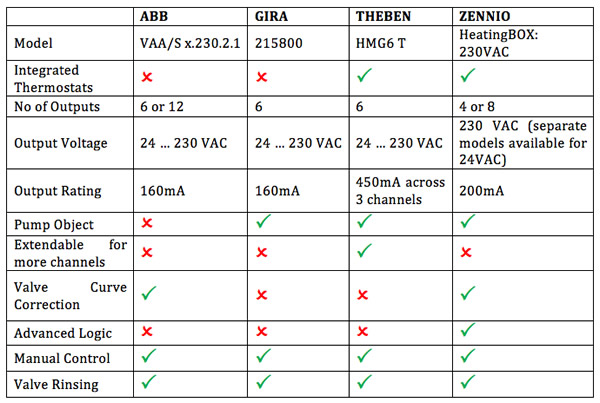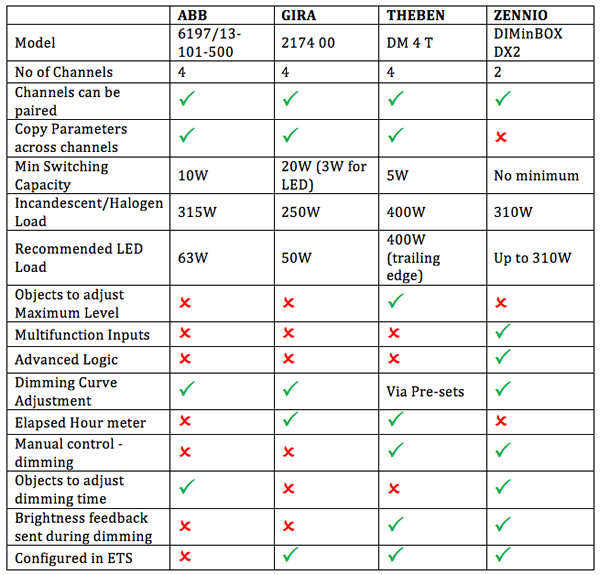 By Mark Warburton, Ivory Egg.
By Mark Warburton, Ivory Egg.
One of the key differences between KNX and other systems is the multitude of manufacturers and the interoperability of the products. This offers major benefits to end users, however, it can be quite a challenge to work out which products to use.
As a distributor, we are often asked what our favourite products are or what is the best product to use. Whilst we all have our preferences, we take a different approach with customers. We take the time to explain the differences between products, allowing customers to make an informed decision as to which is one is right for their customer and project.
There are two key product areas where this frequently crops up, so lets explore some products and their key features.
Manifold Controllers
As they are used on most residential KNX projects, specifying the right manifold controller can make programming and installation quicker and easier. The following table is an example of how the main features can be broken down for a selection of manifold controllers. This table is by no means exhaustive in terms of manufacturers or features, but it does give an idea of the difference in the electrical ratings, additional software functions and whether the unit can be easily expanded for more zones.

Some features may be a specific requirement of the project. For example, integrated thermostats are required if you are simplifying the user experience by removing the ability to change the set point in the room, instead allowing this to be done centrally via a touchscreen or tablet. As most keypads now sense the temperature, this is a simple and cost-effective solution.
Other features make the specification easier, such as being able to control 24 or 230 valves. This removes the need to ensure that the correct valves are supplied with the manifold.
Dimming
We also find ourselves spending a lot of time discussing the merits of different dimmers and dimming technology. Mains dimming has come a long way recently, with almost seamless dimming of LEDs. DALI is still a popular solution on some high-end projects, but even at this level, mains dimming is making a comeback.
The following table is a snapshot of the main dimming features for four manufacturers.

The diversity between the different products is plain, particularly when it comes to the large difference in the maximum loading when using LEDs. This alone can determine which product to use. Or it could be time-saving features such as the ability to copy parameters across channels.
The Importance of Additional Features
Sometimes it is the additional features that make a product stand out. The multifunction inputs on the Zennio, for example, can be used for push buttons, motion sensor or temperature probes which almost make it a one-box solution. Or it could be the ability to a set a temporary maximum level such as on the Theben – perfect for load shedding applications. If you have visualisation on the project, you may want to use a dimmer where you can set the brightness feedback object to update as the channel level changes. This provides more realistic feedback as circuits are dimmed.
Conclusion
These are just two examples of the huge diversity offered within KNX. Even from a single KNX manufacturer, product features and performance can vary, so it is important to spend the time getting to know which products suit your projects best, or to find a good distributor who is able to do the legwork for you.
Mark Warburton is the Technical Director of Ivory Egg (UK) Ltd, a supplier of leading KNX products and provider of KNX training courses. Mark is also a regular contributor to KNXtoday magazine.











